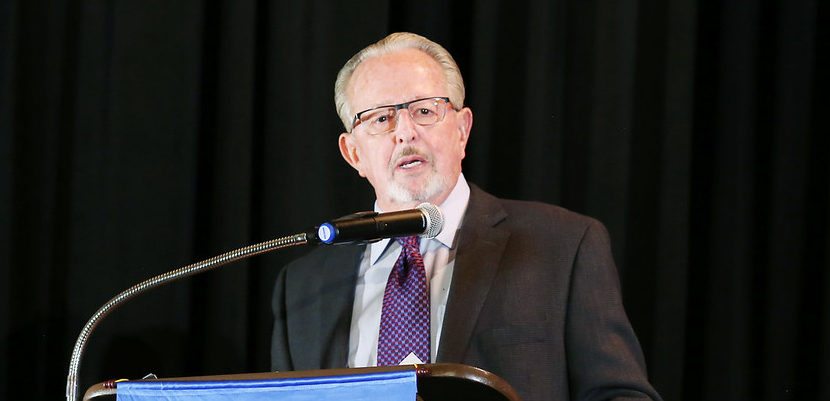
By Susan Motander
Two potential fiscal crises were averted by the Monrovia City Council by its actions on Tuesday evening. They faced the question of how to cope with the rising the costs of meeting the financial burden of unfunded accrued liability associated with pensions, and of the increased cost of water.
Despite the fact that Governor Jerry Brown, declared that the drought was over in the State of California, there is still a severe shortage of water in Southern California. Last winter there was major snowfall in Northern California resulting in a restored snowpack. However for more than six years this area has been dealing with the worst drought conditions ever.
The city of Monrovia draws it water from the Main San Gabriel Basin (MSGB). The Watermaster of the MSGB is charged with the management of the water within the area. In order to ensure that there is an adequate supply of water available for the more than 1.275 million people who draw from the MSGB, the Watermaster has had to purchase water. This cost of this water must be passed on to the users.
In order to pay for the increased costs, the city of Monrovia has proposed raising its water rates. To be in compliance with state law, the city has proposed a public hearing on Jan. 16, 2018 regarding the proposed rate adjustment. Proposition 218 (passed by voters in 1996) mandated specific procedures when “property related” fees were increased. The first step is mailing a notice at least 45 days prior to the hearing.
According to City Manager Oliver Chi, the increase proposed water rates would result in approximately $17 per year. It should be noted, that the less water used by residents, the less the increase would be felt.
While the issue of increasing the water rate to reflect the increased cost of the water is a rather simple one, the other matter the council addressed is much more complex: that of dealing with the increased cost of employee pensions.
The California Public Employees Retire System, CalPERS, has begun to implement, what they call “rate adjustments” to “address rising Unfunded Accrued Liability (UAL) levels associated with California’s public sector pension system (as noted in the City Manager’s update this week). This means an increased cost to the city to pay for the pensions of the city’s retired employees. This reason for the increased in the cost of is multifold.
The state pension fund takes the funds supplied by the various political entities (cities, counties, etc.) and the employee contributions, invests them and the retirement benefits are paid out of the income from those investments. In the 1990s the fund was operating with a projected income of over 8%. The fund was fully funded at that time.
In 1999 then Governor Gray Davis signed into law (SB 400) that offered enhanced benefits for public employees. At the time, the stock market was at record highs and the state pension fund was making a profit, so such benefits were possible. Shortly thereafter came the burst of “dot com” bubble and the economy went into what many call a depression. The income from the invested funds fell substantially.
CalPERS now has only 61cents for every $1 owed in pensions. The fund is turning to the cities to make up the difference. In order to do this, the trustees of CalPERS have enacted a major rate increases. Since 2012 they have decreased the anticipated revenue from their investments from 7.75 percent to 7.5 percent. They are also charging the cities more. Until now the city of Monrovia has been able to absorb the increase in rates. Starting next year the rate increase will be almost a 20 percent increase, with slightly reduced increases for the next four years. Many cities in the state will face bankruptcy until they form plans to make pay these increases according to Monrovia’s City Manager.
Chi outlined Monrovia’s plan to the council and they adopted that plan despite their laments regarding the failure of the state to prepare for such a situation. As Mayor Tom Adams said, paraphrasing Oliver Hardy of Laurel and Hardy fame, “This is another fine mess Sacramento has gotten us into.”
According to Chi, the plan for Monrovia involves five steps.
The city employees have agreed to pay a larger share of the cost of their own pensions. For example the City Manager will pay an additional $325 per month toward his retirement, Division Managers will pay $125 more, and the average city employee will pay $85 per month. This means every city employee contributes more to his or her retirement.
Secondly, the city will take out a bond to pay the additional monies required by CalPERS. According to Chi the current rate on municipal bonds make this a favorable move for the city. The third arm of the plan is to force the council to review accrued liability on a yearly basis so that the situation will not be allowed to become dire again.
The next step, an increase in the city’s Transient Occupancy Tax (TOT), that is the so-called room tax for hotels, etc. Currently the rate in Monrovia is only 10 percent while most communities west of Monrovia have rates beginning at 12 percent. This matter must be placed before the voters before being enacted. The city council’s action on Tuesday only authorized the city to move forward with the plan.
Lastly, the city will move to establish Community Facility Districts for new residential development projects. This move would mean that with the approval of the developer, certain upfront fees will be waived in lieu of additional property taxes. These taxes will stay with the property.
The council’s unanimous passage of the plan will put all these steps into motion.






